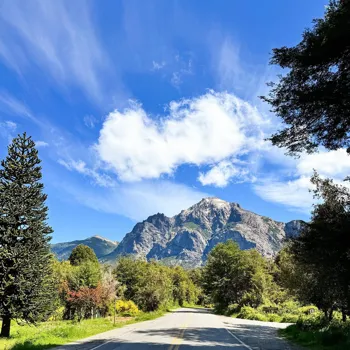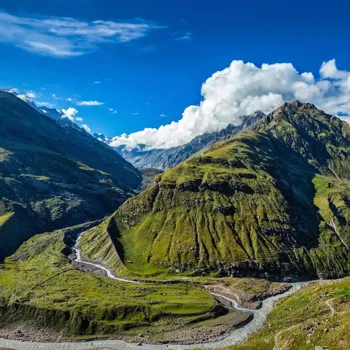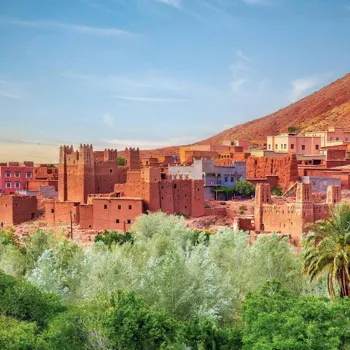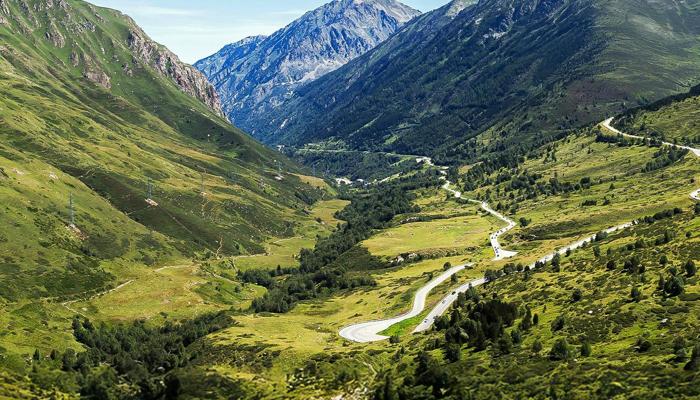Embark on a Purposeful Journey: Traveling with Meaningful Intent. Dive into how to plan trips with a lasting impact
In today’s fast-paced world, travel has become more accessible than ever. But beyond the
Instagram-worthy photos and ticking off destinations on a bucket list, a growing number of Indians are seeking something more from their journeys.

They’re looking to travel with a purpose, to connect with local communities, learn new skills, and make a positive impact on the places they visit. This isn't just about sightseeing; it's about seeing the world through a different lens and returning home transformed.
Planning a meaningful trip requires a shift in mindset, a willingness to step outside your comfort zone, and a genuine desire to engage with the world around you. So, how can you transform your next vacation from a simple getaway into a purposeful adventure? Let's find out, shall we?
Travel with purpose by aligning your values with your trip goals
Before you even begin browsing flight tickets or booking accommodation, it’s crucial to ask yourself: “Why am I traveling?” What do you hope to gain from this experience? What kind of impact do you want to make? This is where self-reflection comes into play.

Are you passionate about environmental conservation? Do you want to learn about sustainable farming practices in rural India? Are you eager to contribute to education initiatives in underprivileged communities? Perhaps you’re interested in exploring ancient art forms and supporting local artisans.
Your "why" will serve as your compass, guiding your decisions and ensuring that your trip aligns with your values. Take some time to brainstorm your interests, skills, and passions. Consider what truly matters to you and how you can integrate these elements into your travel plans.
Once you have a clear understanding of your goals, you can start researching destinations and activities that resonate with your purpose.
For example, if you’re passionate about wildlife conservation, you might consider volunteering at a sanctuary or joining a research expedition focused on protecting endangered species.
If you’re interested in cultural immersion, you could explore homestay options in rural villages, participate in local festivals, or take language classes to connect with people on a deeper level.
Remember, a meaningful trip is not about grand gestures; it’s about genuine connection and a desire to contribute, however small, to something bigger than yourself.
Define travel goals, research NGOs, volunteer ethically, engage locally
Once you have defined your travel goals, the next step is to do your research and plan your itinerary. This involves identifying organizations or initiatives that align with your values and offering opportunities for meaningful engagement.
The internet is a valuable resource for finding such opportunities. Look for NGOs, community-based organizations, or social enterprises that are working in the areas you are interested in.
Websites like GiveIndia and Guidestar India can help you find reputable organizations working on various social causes across India. When researching potential organizations, pay close attention to their mission, values, and the kind of work they do.
Read reviews and testimonials from past volunteers or participants to get a sense of their experience. It's also important to understand the organization's approach to community engagement and ensure that it is ethical and sustainable.
Look for organizations that work in partnership with local communities and prioritize their needs and perspectives. Another option is to explore volunteer tourism or "voluntourism" programs.
These programs offer structured opportunities to volunteer in various fields, such as education, healthcare, environmental conservation, and community development. However, it’s important to choose these programs carefully.
Some voluntourism programs can be exploitative or ineffective, so be sure to do your research and read reviews before signing up. Look for programs that are transparent, sustainable, and genuinely benefit the local community. Finally, don't be afraid to reach out to organizations directly.
Contact them via email or phone to inquire about volunteer opportunities, discuss your skills and interests, and learn more about their work.
Embrace slow travel for meaningful connections and cultural immersion
One of the key principles of purposeful travel is to embrace slow travel. This means slowing down, taking your time, and immersing yourself in the local culture.
Instead of rushing from one tourist attraction to another, try to spend more time in one place, get to know the locals, and learn about their way of life. This could involve staying in a homestay with a local family, learning a local craft, or participating in a community event.
When you travel slowly, you have the opportunity to connect with people on a deeper level and gain a more authentic understanding of their culture. You can also support the local economy by buying from local businesses and eating at local restaurants.
Slow travel also allows you to be more mindful of your impact on the environment. Instead of taking flights or renting a car, consider using public transportation, cycling, or walking.
This will not only reduce your carbon footprint but also give you the opportunity to see the country from a different perspective. For example, traveling by train in India is a great way to experience the diversity of the country and meet interesting people along the way.
Slow travel is not just about the pace of travel, but also about the mindset. It's about being present, open-minded, and willing to learn from the people and places you encounter.
When you embrace slow travel, you're not just a tourist; you're a learner, a guest, and a participant in the local culture.
Travel responsibly: minimize environmental impact through conscious choices in transportation, accommodation, and consumption
Traveling responsibly also means minimizing your environmental impact. This involves making conscious choices about your transportation, accommodation, and consumption habits. When it comes to transportation, consider using public transport, cycling, or walking whenever possible.
If you need to fly, try to book direct flights to reduce your carbon footprint. When it comes to accommodation, choose eco-friendly hotels or guesthouses that prioritize sustainability. Look for accommodations that use renewable energy, conserve water, and recycle waste.
You can also support local communities by staying in homestays or guesthouses that are run by local families. When it comes to consumption, be mindful of your purchases and try to buy locally made products. Avoid buying souvenirs that are made from endangered species or harmful materials.
You can also reduce your waste by bringing your own reusable water bottle, shopping bag, and cutlery. Another important aspect of sustainable travel is to respect the local environment and wildlife. Avoid littering, stay on designated trails, and do not disturb animals or their habitats.
If you are visiting a national park or wildlife sanctuary, follow the park's guidelines and regulations. You can also support local conservation efforts by donating to environmental organizations or volunteering on conservation projects.
By adopting sustainable practices, you can minimize your environmental impact and help protect the planet for future generations. Remember, every small action counts.
Embrace flexibility and adaptability while traveling for meaningful experiences
While planning is important, it’s equally important to embrace flexibility and adaptability when you’re traveling with a purpose. Things don't always go according to plan, and unexpected challenges can arise.

For example, a volunteer project might be canceled due to unforeseen circumstances, or a local festival might be postponed due to weather conditions. In such situations, it's important to be flexible and open to alternative plans.
Instead of getting frustrated or discouraged, try to see these challenges as opportunities for new adventures. Perhaps you can use the extra time to explore a different part of the country, learn a new skill, or connect with local people in a different way.
Adaptability also means being willing to step outside your comfort zone and try new things. For example, you might be asked to perform tasks that are outside your area of expertise, or you might be invited to participate in a local ceremony that is unfamiliar to you.
Instead of shying away from these experiences, embrace them as opportunities to learn and grow. Remember, the most meaningful moments often happen when you least expect them.
By being flexible and adaptable, you can make the most of your travel experience and create memories that will last a lifetime. Don't be afraid to go off the beaten track and explore the hidden gems of India.
Some of the most rewarding travel experiences are those that are unplanned and spontaneous.
Reflect on purposeful travel, share experiences authentically to inspire others
After your trip is over, take some time to reflect on your experiences and share them with others. This is an important part of the process of purposeful travel. Share your stories with friends, family, and colleagues.

Talk about what you learned, what you contributed, and how your trip impacted you. Sharing your experiences can inspire others to travel with a purpose and make a positive impact on the world. You can also share your experiences online through social media, blogs, or travel websites.
This is a great way to reach a wider audience and spread the message of purposeful travel. When sharing your stories, be sure to be authentic and honest. Talk about the challenges you faced, as well as the rewards you experienced.
Don't just focus on the highlights; also share the moments when you felt overwhelmed, frustrated, or uncomfortable. By sharing your vulnerabilities, you can make your stories more relatable and inspiring.
Finally, consider continuing your involvement with the organizations or communities you worked with during your trip. You can stay in touch with the people you met, offer ongoing support, or advocate for their cause. Remember, purposeful travel is not just a one-time event; it's a way of life.
By continuing to engage with the world around you, you can create a lasting impact and contribute to a more just and sustainable future. So, pack your bags, open your heart, and embark on a journey of purpose and discovery. The world awaits.











